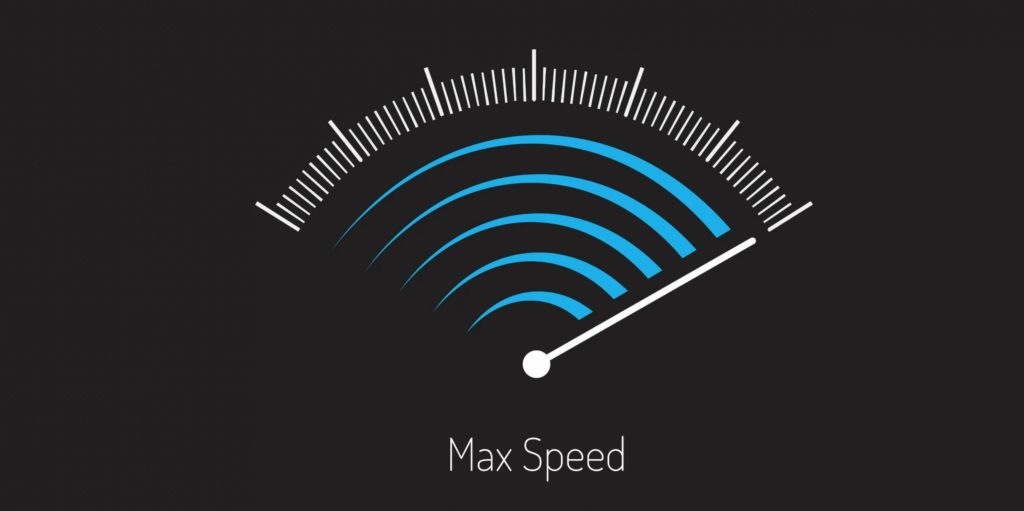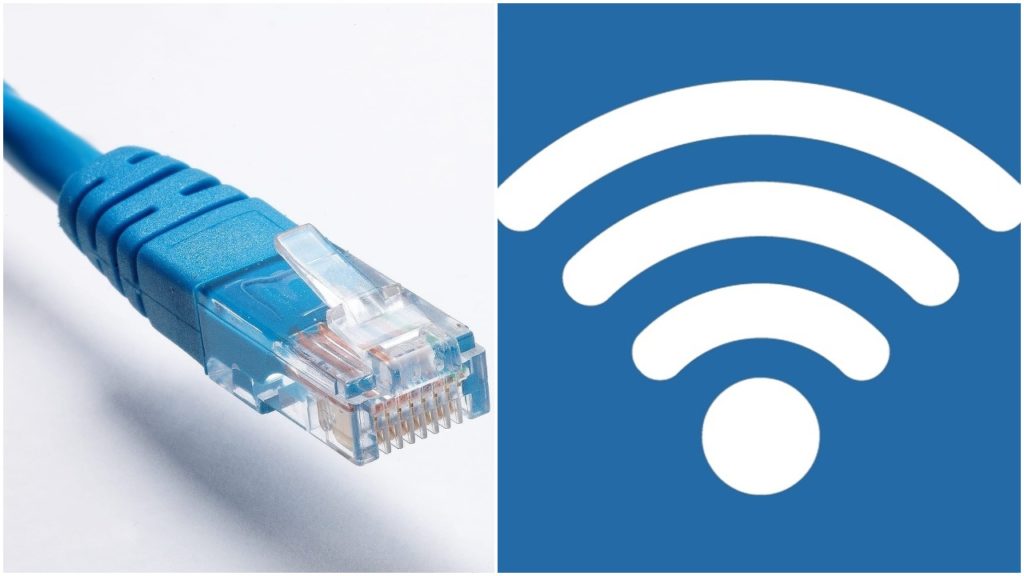In this post, we will compare Ethernet LAN and Wi-Fi connections while exploring their main differences. That way you will be able to choose the best internet connection for your use case. No one will obviously connect their smartphone or tablet with an ethernet cable. Thus for portable devices, Wi-Fi is a clear winner. Hence the focus here is on personal computers. Also Read: 7 Uses For The USB Port on Your Router
1. Speed
The initial Wi-Fi 802.11g standard had a maximum theoretical speed of 54Mbps. This is while wired ethernet connections could easily offer 100Mbps to 1000Mbps, and beyond. However, the much updated and developed 802.11ac Wi-Fi standard can sustain up to 3200Mbps. The latest Wi-Fi standards make Wi-Fi much more decent compared to Ethernet when it comes to speed. Keep in mind that your connection speed will most likely be the bottleneck to all activities you do online. For instance, if you want to download stuff, stream, or even play online games, the quality of your experience will mostly depend on the speed of your internet connection. If you intend to share files within a local network, ethernet is faster and smoother means. Also Read: What is WiFi Direct and how is it different from Bluetooth
2. Reliability
The connection speeds we have mentioned above are purely theoretical. Real-world applications will be quite different. You are likely to experience fast and stable speeds while downloading large files via Ethernet consistently. Wi-Fi connections are prone to various environmental factors that cause signal interference and degradation. You will also notice sporadic Wi-Fi signals within your house, from one room to another. You can of course try to mitigate this by optimizing your router placement. But you will not be able to achieve connectivity that will be as stable as an ethernet connection. This is one major reason why serious online gamers opt for ethernet over WiFi is reliability. Also Read: The updated guide to WiFi wireless network connectivity
3. Security
Security is a huge factor in applications where data stored in devices within a network is highly confidential, like within military organizations. Note that whenever classified data is sent over an ethernet connection, it will only be accessed by devices physically connected to the network. That minimizes the chances of an external hack. On the other hand, Wi-Fi is not quite recommended for use when sharing classified or sensitive data. If you absolutely have to, make sure the data is encrypted. Open public Wi-Fi is the most insecure. Also Read: A gentle guide to home networking: Understanding MiFi, Routers, Access Points and Switches
4. Latency
The quality of an internet connection is much more than just raw bandwidth speeds. Latency (or Ping) is the time it takes a signal to reach its destination from a device. Latency is critical when it comes to online gaming as it could mean the difference between victory or humiliation. Therefore, if it is imperative for you to avoid irritating lags, Ethernet is your go-to internet connection. Wi-Fi generally has a higher latency compared to Ethernet. Also Read: The simplest difference between 3G/4G LTE and WiFi-only routers
5. Interference
As earlier mentioned, there are many sources of Wi-Fi interference. Wi-Fi interference in homes and offices can be caused by various devices such as microwaves. The issues caused will range from increased latency, reduced speed, or even dropped signals. Thus, Ethernet is more reliable in terms of stability/reduced interference. Also Read: These are the simplest ways to connect a Smart TV to the internet
Ethernet LAN vs WiFi: Which is Best For You
If you are an average user looking for a suitable connection for everyday use, then you will most likely find a good quality Wi-Fi connection to be sufficient. For heavy internet users such as competitive gamers who wouldn’t risk instability in their connection, Ethernet is appropriate. Likewise, in applications and use cases that require a high level of security, ethernet connections are most suitable. Keep in mind that most wireless routers have Ethernet ports that can be used for wired connections to compatible devices. In as much as wireless connectivity is growing much more popular, ethernet still has significant benefits that it offers. But they both have their pros and cons, depending on the factors we have discussed above. We’d love to know: which do you find to work out best for you between Ethernet LAN vs WiFi when it comes to connecting your devices to the internet? Kindly share your experiences with us via the comments section below. Also Read: Bluetooth 5 vs WiFi Direct: Which is the best for sharing files between smartphones







